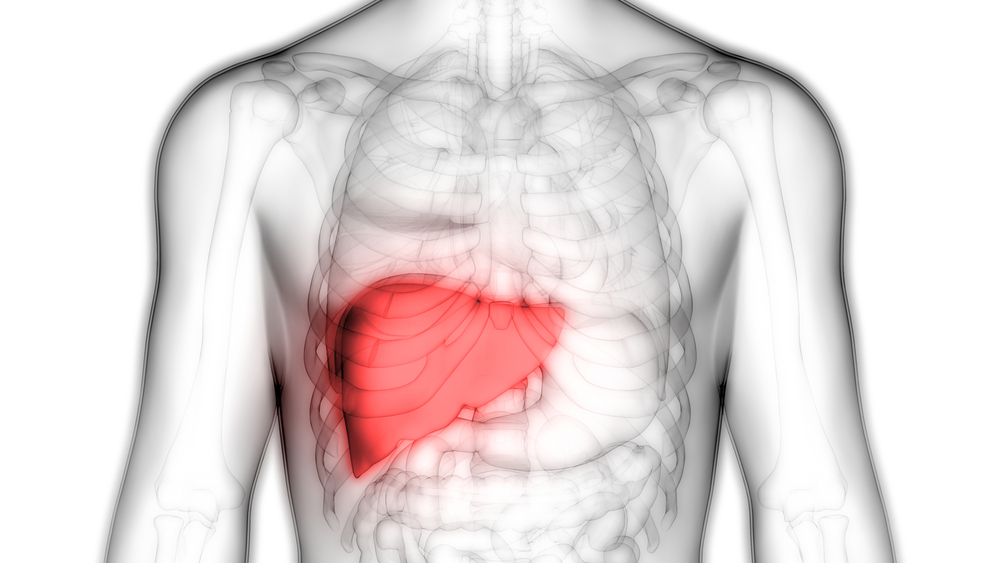PCT Linked to Higher Risks of Gastrointestinal Disease, Cancer, and Premature Death, Study Suggests
Written by |

People with porphyria cutanea tarda (PCT) have higher risks of developing gastrointestinal diseases and certain types of cancer, compared with individuals from the general population, a study says. They also are more likely to die prematurely.
The findings of the study, “Increased mortality in patients with porphyria cutanea tarda – a nationwide cohort study,” were published in the Journal of the American Academy of Dermatology.
Porphyria cutanea tarda (PCT) is the most common form of porphyria, and is characterized by skin abnormalities, including sunlight sensitivity, skin peels or blisters, and changes in skin tone. It is caused by low levels of a liver enzyme called uroporphyrinogen decarboxylase (UROD). This enzyme is required for the production of heme — a molecule essential for red blood cells’ oxygen transport, and the breakdown of compounds in the liver.
A previous study found that, over a period of 20 years, people with PCT were more likely to die prematurely from cancer, chronic obstructive pulmonary disease (COPD), and liver cirrhosis. Published in 1999, that study compared the mortality rates of Danish and Swedish PCT patients to those of individuals from the general population.
“Since then, new diagnostic tools and treatment modalities have emerged, and the general population survival has improved,” the investigators said. “Whether these changes have influenced the survival of persons with PCT is not known; however, such information is important to the patients and the clinicians caring for them.”
To learn more, a team of researchers from the Odense University Hospital in Denmark and their collaborators set out to investigate whether people with PCT were more likely to die prematurely compared with individuals from the general population. Moreover, they wanted to find out what were the most frequent causes of death now among PCT patients.
The nationwide study involved a total of 659 Danish people — 358 men and 301 women — who had been diagnosed with PCT between September 1989 and December 2012. Each patient was matched by age, sex, and birth year to 10 individuals from the general population (controls), yielding a total of 6,586 participants. That total included 3,580 men and 3,006 women.
Participants’ survival and specific causes of death were assessed and compared in both groups. Data adjustments were made for possible confounding factors, such as the presence of alcohol-related diseases, hepatitis, HIV, diabetes, stroke, and cancer.
Results showed that people with PCT had lower chances of surviving 20 years compared with individuals from the general population (42.9% versus 60.5%).
People with PCT also were approximately 1.8-times more likely to die prematurely from any cause, compared with controls, the study found. After adjusting the data for possible confounding factors, this value dropped to 1.22. “[This means] the excess mortality for patients with PCT was partially, but not fully, explained by the comorbid diseases we considered,” the researchers said.
Moreover, the investigators found that, compared with controls, people with PCT were approximately 11.24-times more likely to have liver or gallbladder cancer. PCT patients also were 5.32-times more likely to develop non-cancerous gastrointestinal diseases, and 2.05-times more likely to have cancer of the gastrointestinal tract. Additional results showed people with PCT were 2.17-times more likely to develop lung cancer.
“We showed that a large part of the excess mortality in patients with PCT was due to lifestyle factors and comorbidity, and this conclusion is corroborated by their higher risk of death from alcohol-related causes, accidents, and suicide,” the researchers said. “It is possible that the 1.22-fold higher mortality in our PCT group is in fact due to residual confounding from lifestyle factors, i.e., we could not measure those factors with sufficient accuracy to fully eliminate confounding.”
The researchers say, however, that it also is possible that PCT in itself increases mortality.
“This hypothesis that porphyrins are toxic is supported by a study from 1992 which showed that PCT patients who developed hepatocellular carcinoma [liver cancer] had a longer untreated symptomatic period. Unfortunately, we do not have the data to fully clarify the causes of the higher mortality among our patients with PCT,” they added.





